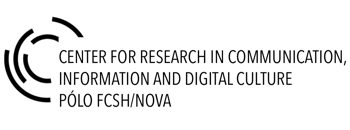The shifting communicative environment asks for experimentation in media, aiming at new narratives, tools and a new connection with the audience (Salaverría, 2015)[1]. At the same time, universities must adapt to the new multimedia and digital reality by becoming a place of training which is also, and more than ever, linked to experimentation and innovation.
In this new communicative environment, a re-evaluation of communication education is required since it must seek to meet the digital demands of the news media professions (Born, S. 2014)[2].
University-based research labs can help companies to train and promote the transfer of knowledge in the area of communication. The research scope is broadened and diversified around new narratives, professional profiles, use of sources through social networks, ethics of informative contrast, or the emergence of clickbait, among other aspects. In sum, there are new communicative paradigms that require new synergies between classroom, laboratory and company. How is it possible to approach the academic and professional fields? How do universities adapt to changes in the sector? What can we learn from these changes and how do we study them? What challenges and answers can be provided from the classroom to the company and back?
These are questions we would like to address at the 4th conference of the ECREA Temporary Working Group (TWG) Journalism and Communication Education Research, which will take place at the Centro de Estudos de Comunicação e Sociedade (CECS) in Braga, Universidade do Minho, Portugal. On this occasion, the TWG proposes a debate on innovation and trends that flow between the classroom and the company, between ‘the research laboratory’ and the media professions. We want to think about how to connect the two sides, the academic and the professional perspective, at a time of innovative need.
We invite you to attend the conference ‘Trial & Error II’ and to submit contributions on media education. Contributions may be theoretical, methodological or empirical in nature and can touch upon, but are by no means restricted to, the following topics:
– New formative trends in the classroom and innovative didactics
– Experiments in multimedia narratives and tools
– The media professionals humanistic and ethic education
– New training profiles: Social Media Manager, MOJO, Data journalist, specialized, etc
– New business models in communication
– Ongoing teacher training in the new multimedia environment
– University and company laboratories
– Training future media professionals in social awareness, ethics and critical thinking
– Research methods and research perspectives in education for media professions
– Applicability of research in the classroom
Please note that we invite contributions in various formats, e.g. workshops, panels and conference presentations.
• Workshops sessions deal in a practical way (‘hands on’) with current aspects of media
education. Proposals for workshop sessions should include a clearly defined workshop topic
and goal, and a number of questions or assignments for discussion as well as an indication of
the length of the session. Please submit a short workshop description (max. 500 words).
• Conference presentations involve research results and/or theoretical work relevant to the conference theme. Please submit an abstract (max. 500 words, not including references),
outlining the state of the study or research project, as well as the research question(s) or
hypotheses, findings and conclusion(s). We also encourage submitting work in progress, e.g.
new theoretical or methodological ideas you wish to discuss with peers at the conference.
• Panels consist of various presentations addressing a common topic from different
perspectives. Panels are scheduled for one hour, including discussions. Panel proposals
should include a description of the topic and an overall panel goal, addressing the relevance
of the topic to the conference theme (400 words). The proposal should also suggest a chair
to serve as a moderator and should include a short abstract of each of the presentations
(max. 200 words each).
True to the interdisciplinary nature of this conference, we encourage contributors to combine education for various media professions (PR, journalism, media management …) or to address the applicability/relevance of their topic for programs from different areas of media education.
Deadline for abstract submission: Monday, February 19, 2018.
Accepted presenters will be informed by Monday, April 2, 2018.
The conference will take place Thursday, May 10 and Friday, May 11, 2018.
Please submit abstracts at this link of the official website http://www.lasics.uminho.pt/trialanderror2018/call-for-abstracts/
The Conference is organized by Centro de Estudos de Comunicação e Sociedade (CECS), with the coordination of Dra. Sandra Marinho (marinho@ics.uminho.pt), and the ECREA Journalism & Communication Education TWG management team:
Dr. Michael Harnischmacher (Chair) / University of Passau / Passau, Germany (michael.harnischmacher@unipassau.de)
Dr. Harmen Groenhart (Vice chair) / Fontys University of Applied Sciences / School of Journalism / Tilburg, The Netherlands (h.groenhart@fontys.nl)
Dra. Pilar Sánchez-García (Vice chair) / University of Valladolid / Faculty of Philosophy and Arts/ Valladolid, Spain (pilar.sanchez@hmca.uva.es)
1 Salaverría, Ramón (2015). “Labs as a formula for media innovation”. El profesional de la información, v. 24, n.4, pp. 397-404. http://dx.doi.org/10.3145/epi.2015.jul.06
2 Born, Stephanie E. (2014). “Teaching Social Media Journalism: Challenges and Opportunities for Future CurriculumDesign” Journalism & Mass Communication Educator Vol. 69(3) 243–255 DOI: 10.1177/1077695814531767
